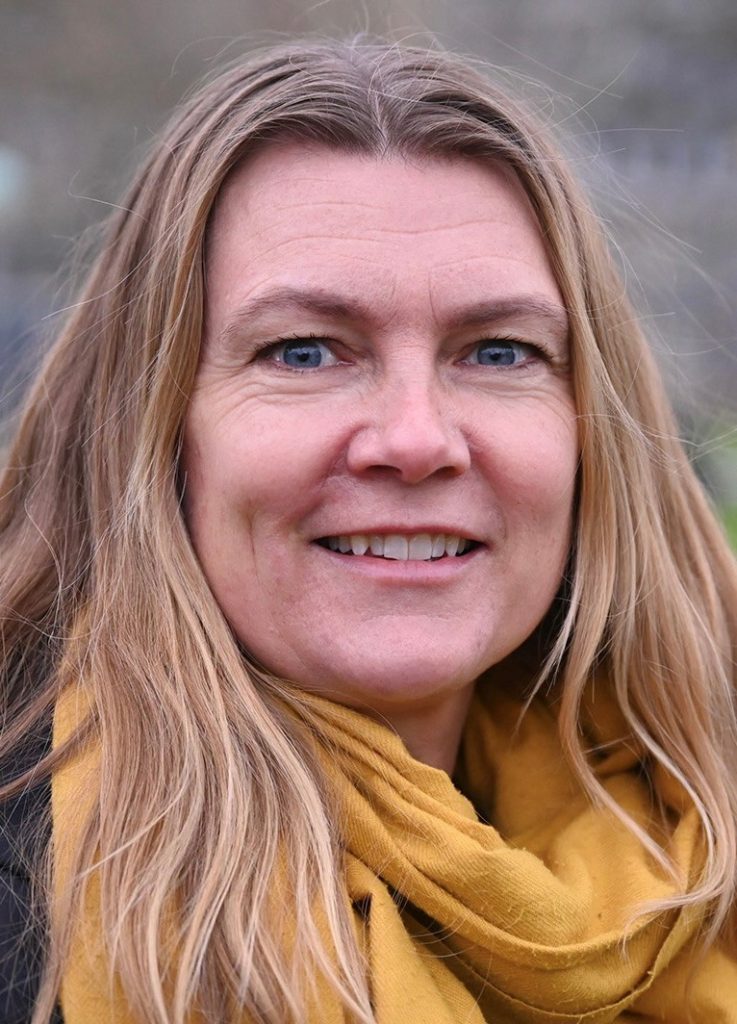Mette Burmølle, Associate Professor, Department of Biology, University of Copenhagen is receiving a grant of DKK 10 million to reveal how viruses that infect and then kill bacteria (bacteriophages) attack bacterial biofilms, for example in infections.
The battle against antimicrobial resistance has been intensifying in recent years, and researchers have discovered that viruses that infect and then kill bacteria (bacteriophages) may be useful in combatting stubborn infections.
These bacteriophages hold enormous potential in combatting infections in wounds and on implants, harmful gut bacteria, multidrug-resistant bacteria and other pathogens.
However, assessing the potential of bacteriophages to combat various types of bacteria requires research to determine how the bacteriophages interact with bacteria in biofilms: the bacteria’s natural environment on an implant or in a wound.
Mette Burmølle will carry out this research based on a DKK 10 million grant from the Novo Nordisk Foundation’s ambitious Research Leader Programme.
Mette Burmølle will use the Ascending Investigator grant to create the basis for developing strategies for bacteriophage-based drugs for clinical use.
“I hope that this research can bring us closer to being able to make bacteriophages an alternative to antibiotics for people who are severely ill with bacterial infections resistant to antibiotics. Already today, much research is being carried out on possible treatments with bacteriophages, and the results of our research can help to elucidate why some bacteriophage treatments might not work and what is required to make them work,” explains Mette Burmølle.
Bacteria may protect each other against bacteriophages
Mette Burmølle’s research aims to understand the interactions between bacteria and bacteriophages when the bacteria are in a biofilm.
Bacteria typically form biofilms on a surface. Then they clump together and form a matrix of proteins and sugars, which glues them to the surface and protects them against antibiotics, the immune system and other environmental threats. Bacteria are therefore more difficult to kill when they are in a biofilm.
Although much research has been conducted on how bacteriophages kill bacteria, very little research has been conducted on how they kill the bacteria in a biofilm when the biofilm has several types of bacteria.
To discover more about this specific question, Mette Burmølle and colleagues will carry out various experiments to investigate what happens to the biofilm and its bacteria if they add one bacteriophage targeting one type of bacteria in the biofilm versus if they add more bacteriophages that target all types of bacteria in the biofilm.
The researchers will also create mechanistic understanding of the protective effect of the biofilm by using bacteria in which various genes that code for proteins in the biofilm are removed so that they cannot create as durable a biofilm.
“Our research involves improving understanding of the mechanics of the interaction between bacteria and bacteriophages in a biofilm and how this affects the bacterial defence and the bacteriophages’ ability to access the bacteria, even if they are in a biofilm. Another interesting perspective we will also explore is that, although bacteria can also become resistant to bacteriophages, they sometimes apparently either become resistant only to other bacteria or to bacteriophages but not to both simultaneously. Targeting some stubborn bacteria in this way may have promising clinical potential,” says Mette Burmølle.
More fun being a researcher
The research grant extends over 5 years, and Mette Burmølle says that both the size and the time frame enable her to do the research she has dreamed about.
She is moving into a new research field, since she has only previously focused on biofilms but not on bacteriophages. Mette Burmølle says that moving into new fields can be difficult if the funds available only enable one postdoctoral fellow to be hired. The DKK 10 million grant will enable her to hire more employees.
In addition, the 5-year time frame provides opportunities to establish the necessary collaborations with researchers from all over the world, and the grant amount enables her to recruit colleagues with various skills in biofilm research, bioinformatics and bacteriophages.
“It is generally more fun being a researcher when you have the funding to carry out research and to retain employees and their competencies. This is especially important when moving into a new field. Pioneering research requires a lot of work and takes a long time, and grants on this scale make this possible,” explains Mette Burmølle.
37 researchers have received grants
The grant to Mette Burmølle is part of the Foundation’s Research Leader Programme.
The Foundation has just awarded DKK 361 million through the Programme for research within fields including health, disease and sustainability. Individual grants of up DKK 10 million have been awarded to 37 researchers at three different career stages.
- 16 researchers in the Emerging Investigator category have received a grant for establishing their own research group.
- 15 researchers in the Ascending Investigator category have received a grant for consolidating their research group and research profile.
- 6 researchers in the Distinguished Investigator category have received a grant for continuing their research of an already high international calibre.
Since 2018, the Foundation has awarded 5-year grants to more than 200 researchers.
You can read more about the Foundation’s Research Leader Programme here.
Further information
Christian Mostrup, Head of Press, Novo Nordisk Foundation, cims@novo.dk, +45 3067 4805

